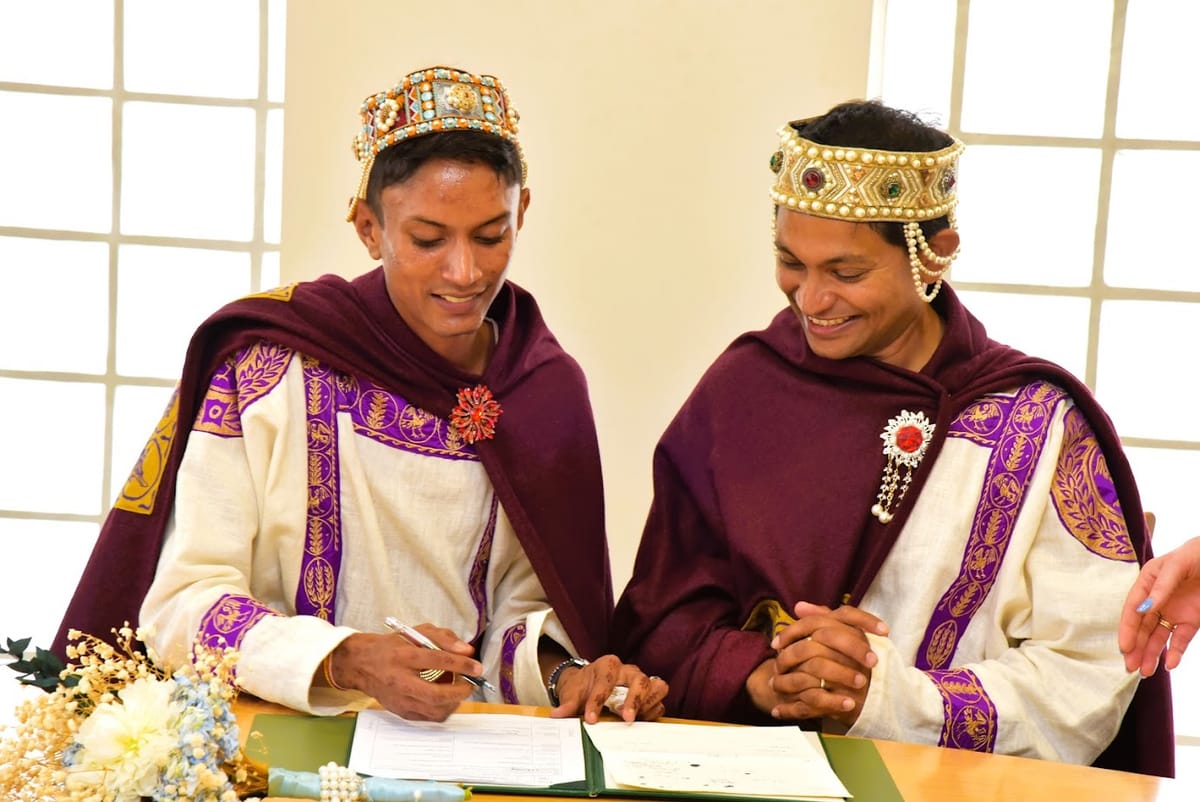Gay Mauritian couple celebrates UK civil partnership and calls for full equality at home

Mauritian nationals Pliny Soocoormanee, who works for Peter Tatchell Foundation, and Jay Raj have officially registered their civil partnership in Birmingham - a personal milestone they describe as both a celebration of love and a statement of visibility.
Their union comes just two years after the Supreme Court of Mauritius struck down Section 250 of the Penal Code, the colonial-era law criminalising consensual same-sex intimacy. The ruling was a landmark for LGBTQ+ rights in the country, yet significant legal inequalities remain.
Mauritius still does not recognise same-sex relationships in any form – whether marriages or civil partnerships – leaving couples without legal protection, inheritance rights, or recognition as family under national law.
“Our civil partnership is an expression of our commitment to one another, but it also highlights the legal barriers LGBT+ couples in Mauritius still face,” said Jay Raj. “Decriminalisation was historic. Now it’s time for our relationships to be recognised.”
The Peter Tatchell Foundation, where Pliny works, praised the couple’s openness and called on the Mauritian government to take the next step toward equality
“Decriminalisation is welcome progress, but it is not the end goal,” said Pliny Soocoormanee. “Equality before the law means recognition of our relationships. We are not asking for special treatment – just the same rights as everyone else.”
While the repeal of Section 250 was a powerful symbol of change, Mauritius now faces a defining choice. As a stable democracy with a strong legal framework and an active civil society, it has the potential to lead Africa in advancing LGBTQ+ rights and dignity.
Legal recognition of same-sex unions, combined with robust anti-discrimination protections, would make Mauritius a regional leader and send a clear message that equality is not merely the absence of criminalisation, but the full inclusion of all citizens under the law.





Comments ()